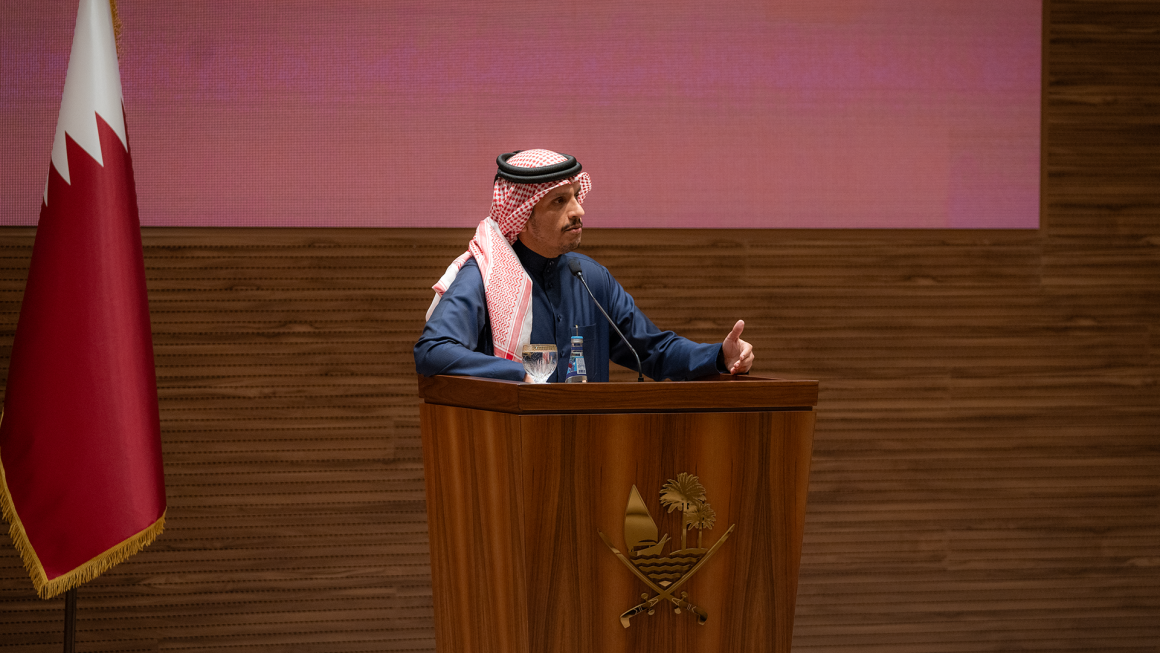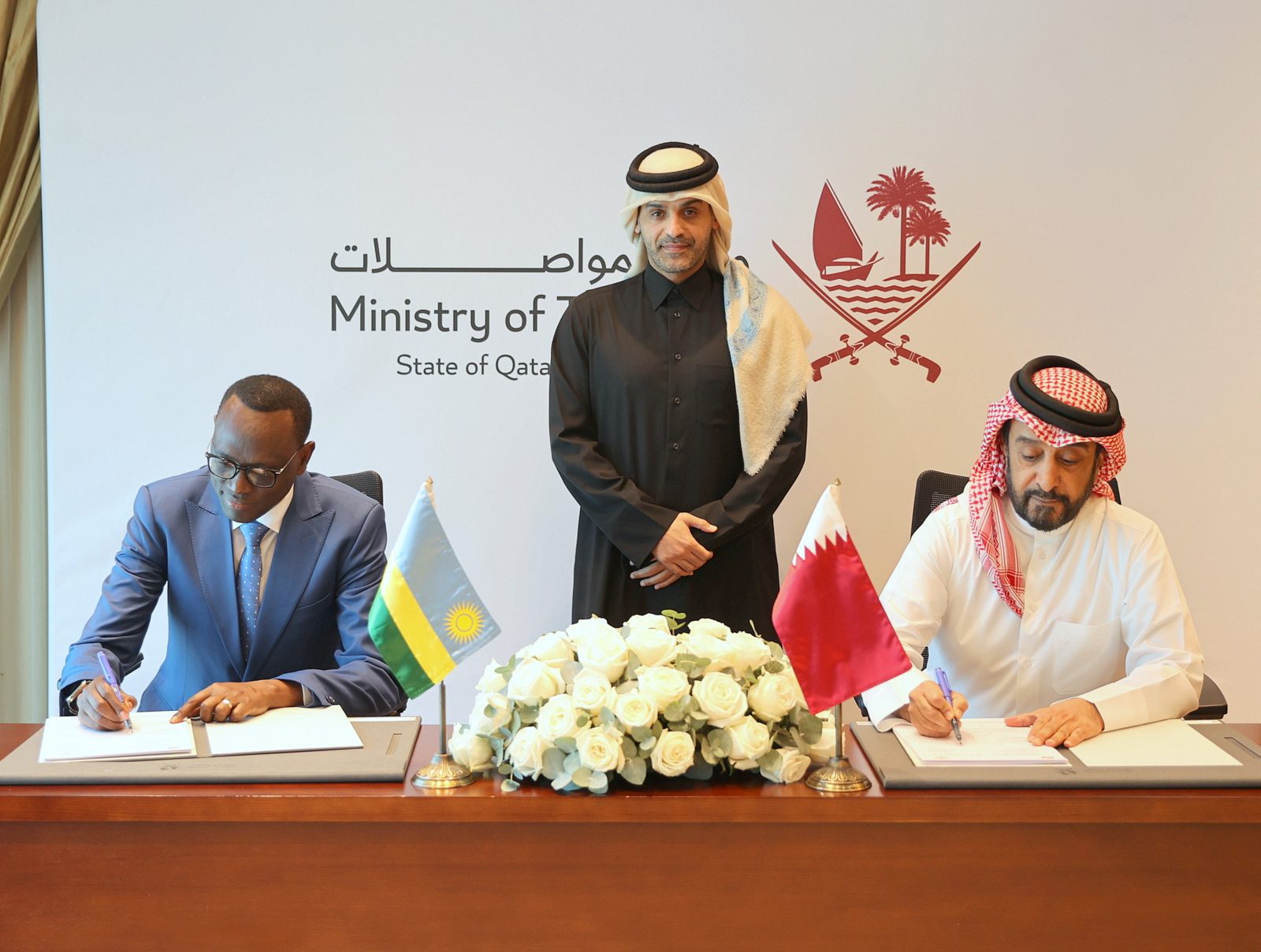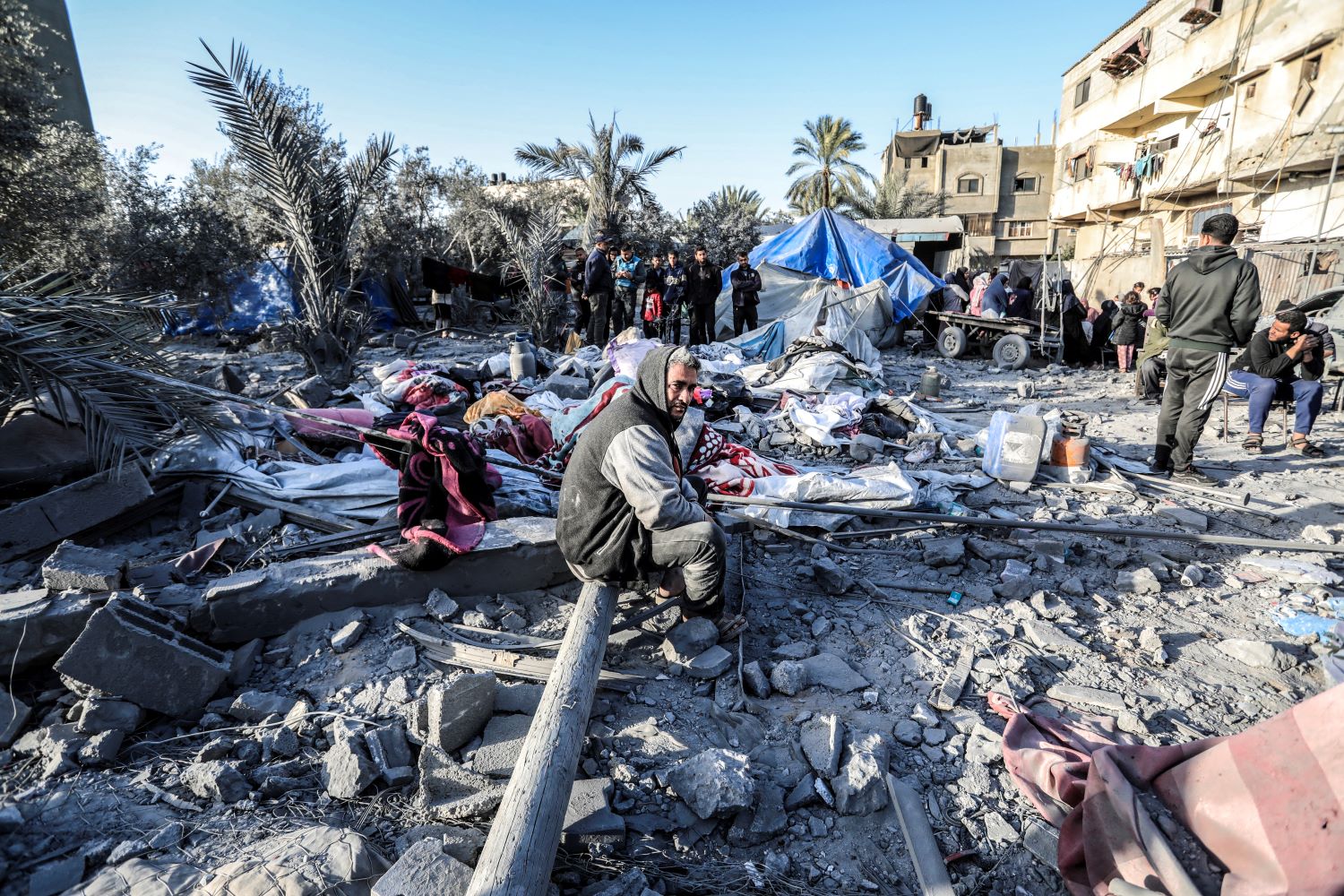The Gaza ceasefire agreement was announced by Qatar’s prime minister and minister of foreign affairs Sheikh Mohammed bin Abdulrahman Al Thani in Doha on Wednesday.
Hamas and Israel have reached a formal agreement for the release of captives and a ceasefire, set to take effect on Sunday. This breakthrough deal marks a significant step toward ending Israel’s 15-month genocide in the Gaza Strip.
Qatar’s Prime Minister and Minister of Foreign Affairs, Sheikh Mohammed bin Abdulrahman Al Thani, announced the agreement in a press briefing held at the Diwan Annex in Doha on Wednesday.
“Qatar, Egypt and the United States are pleased to announce that an agreement has been reached regarding the Gaza Strip,” Sheikh Mohammed told reporters.
The agreement was reached after more than a year of stalled negotiations, which had been facilitated by Qatar, Egypt, and the United States. Prior to the announcement, Qatar’s Prime Minister held separate meetings with delegations from both Hamas and Israel in Doha, according to reports.
“We will continue to do everything possible to ensure that this deal is implemented as agreed. It depends on all the parties acting in good faith for the deal to not collapse,” Sheikh Mohammed noted, adding that Qatar, Egypt and the U.S. will act as guarantors of the deal’s implementation.

The agreement is based on a proposal put forward by outgoing U.S. President Joe Biden in May 2023 and is structured in three phases, each lasting 42 days. The first phase will see the release of 33 Israeli captives, including women soldiers, in return for the release of Palestinian prisoners.
Internally displaced individuals would also return to their homes in the Gaza Strip.
Sheikh Mohammed added that the deal would provide a “safe and effective entry and distribution of humanitarian aid” throughout the Gaza Strip, including fuel shipments. Hospitals, health centres and bakeries would also be rehabilitated during the same phase.
The deal also stipulates the withdrawal of Israeli forces eastwards, away from densely populated residential areas.
Sheikh Mohammed stated that the details of the second and third phases will be determined once Phase 1 is completed.
Meanwhile, President Biden, in a speech in the Cross Hall of the White House, described the ceasefire as the outcome of his “intensive diplomacy”.
“This deal will halt the fighting in Gaza, surge much needed-humanitarian assistance to Palestinian civilians, and reunite the hostages with their families after more than 15 months in captivity,” Biden said, without outlining the deal’s details.
Final stage of the talks
In response to the ceasefire agreement, Hamas declared that it would act “with full responsibility and positivity, in line with its duty to our patient and steadfast people in the honourable Gaza Strip,” aiming to halt “the Zionist aggression against them and put an end to the massacres and genocide they are enduring.”
Outgoing President Joe Biden’s Middle East envoy Brett McGurk had been leading the U.S. delegation in the talks, alongside Trump’s incoming regional broker Steve Witkoff.
Israel was represented by the head of the Mossad intelligence agency, David Barnea, and Shin Bet internal security agency chief Ronen Bar.
The final stage of talks also involved the participation of the Palestinian Islamic Jihad movement, which sent a high-level delegation to Doha to join the “final details of the agreement” on Tuesday evening.
Brokered mainly by Qatar and Egypt, Gaza ceasefire and captives-prisoner exchange talks have been ongoing since the beginning of Israel’s onslaught on the besieged territory in October 2023.
Mounting pressure and threats of regional “hell breaking loose” from President-elect Donald Trump have seemingly pushed both parties and key mediators to reach a deal before he takes office on January 20.
On the domestic front, Israel’s Prime Minister Benjamin Netanyahu, who has been embroiled in ongoing corruption charges, is grappling with increasing public distrust.
Opposition leaders and families of Israeli captives have accused the prime minister of hindering a ceasefire and exchange deal.
Israeli minister of national security Itamar Ben-Gvir threatened to quit Netanyahu’s Cabinet should a Gaza ceasefire and captives release come to fruition in Doha.
A year-long mediation process
A short truce in November 2023, mediated by Egypt and Qatar, expired following Hamas allegations that Israel had rejected prolonging the temporary ceasefire.
Earlier rounds of indirect talks went in vain, often ending in pointed fingers between Israel and Hamas.
The Palestinian resistance front claimed Israel had stalled the negotiations with last minute amendments to their demands.
Israel assassinated key figures in Hamas’ leadership over the duration of its brutal war on the strip.
In October 2024, Israel killed Hamas’ political chief Yahya Sinwar, during armed confrontations in the Tal al-Sultan area in Rafah.
Sinwar had succeeded Ismail Haniyeh, who was assassinated by Israel while he was in Tehran after traveling to attend the inauguration of Iran’s President Masaoud Pezeshkian.
Since October 7, 2023, Israel has killed at least 46,645 Palestinians in its genocide in the Gaza Strip, according to the Gaza’s ministry of health.Despite the official figures, studies revealed that the actual death toll is likely 40 percent higher, taking account those missing and still trapped under the rubble.







